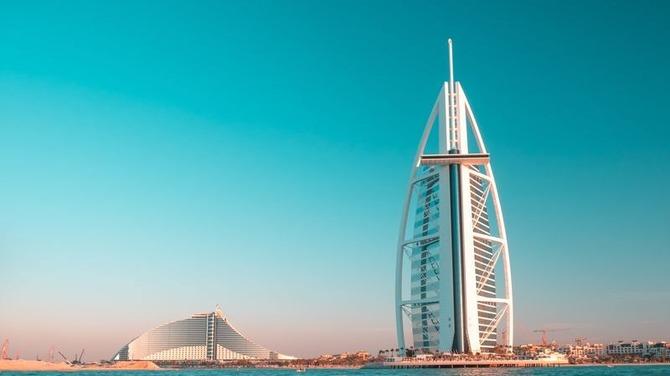
Comprehensive Guide to the Dubai Real Estate Market in 2024
Dubai’s real estate market has long been a global investment hotspot, known for its luxury developments, modern infrastructure, and investor-friendly policies. With a growing economy, world-class amenities, and attractive returns on investment, Dubai remains a prime destination for both local and international property investors.
This guide provides an in-depth look at the Dubai real estate market in 2024, highlighting its key features, property types, trends, and insights for investors.
1. Overview of Dubai’s Real Estate Market
Dubai’s real estate market has experienced substantial growth over the past few decades, transforming the city into a leading global property hub. The city offers a diverse range of properties, including luxury villas, apartments, commercial spaces, and off-plan developments.
- Key Drivers:
- Economic growth: Dubai’s economy is driven by sectors such as tourism, trade, finance, and technology.
- Foreign investment: Attractive government policies allow foreign investors to own properties in designated freehold areas.
- Infrastructure development: Projects such as Expo 2020, Dubai Metro expansions, and smart city initiatives continue to boost demand.
2. Types of Properties in Dubai
Dubai offers a variety of property types to suit different investment goals and lifestyles.
- Residential Properties:
- Apartments: Found in areas like Downtown Dubai, Dubai Marina, and Jumeirah Village Circle, apartments are popular for both residents and investors.
- Villas: Luxury villas in areas like Palm Jumeirah, Emirates Hills, and Dubai Hills Estate are in high demand among high-net-worth individuals (HNWIs).
- Townhouses: A more affordable option for families, located in neighborhoods like Meydan, Arabian Ranches, and Al Furjan.
- Commercial Properties:
- Office spaces in business hubs like Business Bay, DIFC, and JLT are attractive to investors looking for rental income from corporate tenants.
- Off-Plan Properties:
- Buying off-plan properties, especially in new areas like Dubai Creek Harbour or Emaar Beachfront, allows investors to purchase at lower prices before completion.
3. Key Investment Areas in Dubai
Different areas in Dubai cater to a variety of investors depending on their goals:
- Luxury Investments: Areas like Palm Jumeirah, Downtown Dubai, and Emirates Hills are known for high-end properties and strong capital appreciation.
- Affordable Housing: Locations like Jumeirah Village Circle (JVC), Dubai South, and International City offer more affordable options for first-time buyers or long-term rental investments.
- Upcoming Developments: Dubai Creek Harbour, Dubai South, and the Expo 2020 site (now District 2020) are emerging investment hotspots with future growth potential.
4. Legal Considerations for Investors
Dubai’s government has implemented several regulations to ensure investor protection and transparency.
- Ownership for Foreign Investors: Foreign investors can buy property in designated freehold areas like Dubai Marina, Palm Jumeirah, and Jumeirah Lakes Towers.
- Registration Fees: A standard 4% registration fee applies to all property purchases.
- Residency Visa: Investors purchasing property worth over AED 2 million can apply for long-term Golden Visas, offering residency for up to 10 years.
5. Financing Options for Investors
Dubai’s mortgage market offers favorable terms for both residents and foreign investors.
- Loan-to-Value Ratios (LTV): The typical LTV for foreign investors is around 50-75%, depending on the property and the buyer’s financial profile.
- Developer Payment Plans: Off-plan properties often come with flexible payment plans that spread the cost over a few years, making it easier for investors to manage their finances.
- Mortgage Rates: Competitive mortgage rates (ranging from 2.5% to 4.5%) are available from local banks, though terms may vary based on the bank and buyer's financial standing.
6. Rental Yields and Returns on Investment (ROI)
Dubai consistently offers attractive rental yields compared to other global cities:
- Average Rental Yields: Residential properties in areas like Jumeirah Village Circle (JVC) and Dubai Marina offer rental yields between 5-8%, with smaller apartments often yielding higher returns.
- Luxury Properties: Properties in high-demand areas like Downtown Dubai or Palm Jumeirah can offer strong capital appreciation but generally lower rental yields (around 4-5%).
7. Key Market Trends in 2024
Several trends are shaping the Dubai real estate market in 2024, offering opportunities for investors to capitalize on.
- Rise of Sustainable Developments: Projects like The Sustainable City are leading the way in eco-friendly, energy-efficient properties. Investors are increasingly attracted to developments with green certifications.
- Growing Demand for Branded Residences: Branded residences, such as those by Emaar and Bulgari, offer luxury amenities and appeal to international buyers seeking exclusivity.
- Short-Term Rentals: The rise of tourism post-pandemic has led to increased demand for short-term rentals, particularly in areas like Dubai Marina and Downtown Dubai. Properties suitable for Airbnb can offer higher rental yields.
8. Key Considerations for First-Time Investors
First-time investors should carefully plan their entry into the Dubai real estate market:
- Market Research: Understanding market conditions, such as supply-demand dynamics and property prices, is crucial to making informed decisions.
- Developer Reputation: If investing in off-plan properties, always check the developer’s track record in terms of project completion and quality.
- Exit Strategy: Whether you're investing for capital appreciation or rental income, always have a clear exit strategy and timeline for your investment.
9. Future Outlook for Dubai’s Real Estate Market
The Dubai real estate market is poised for continued growth in 2024, driven by:
- Expo 2020 Legacy: The transformation of the Expo 2020 site into District 2020 as a smart, sustainable business and residential hub will create further demand for nearby properties.
- New Infrastructure Projects: Ongoing investments in transportation, healthcare, and education infrastructure will increase the attractiveness of developing areas.
- Foreign Investor Appeal: Dubai’s safe-haven status, attractive visa programs, and tax-free environment continue to draw international buyers.
Conclusion
Dubai’s real estate market in 2024 offers a wealth of opportunities for investors, from luxury villas to off-plan developments with strong potential for capital appreciation. With careful planning, a deep understanding of market trends, and a clear investment strategy, both new and experienced investors can find success in this vibrant and fast-growing market.

